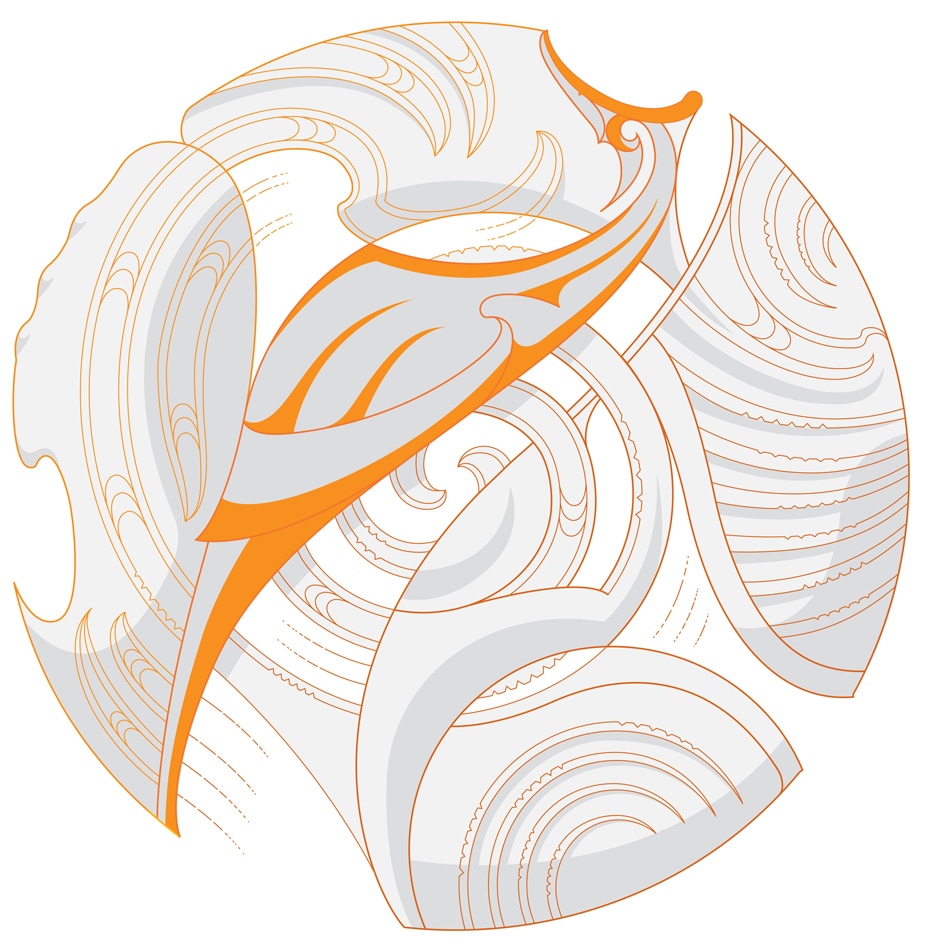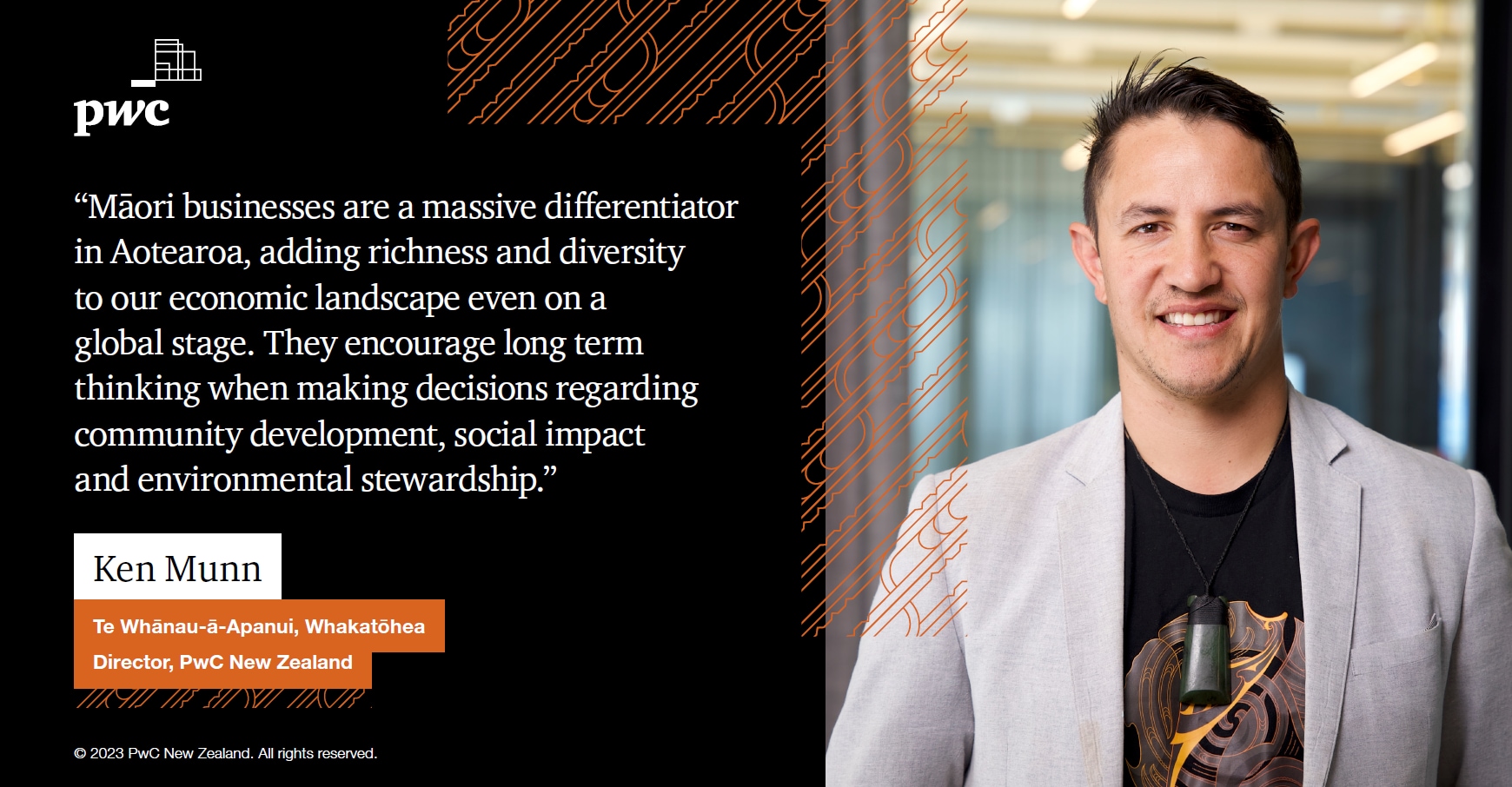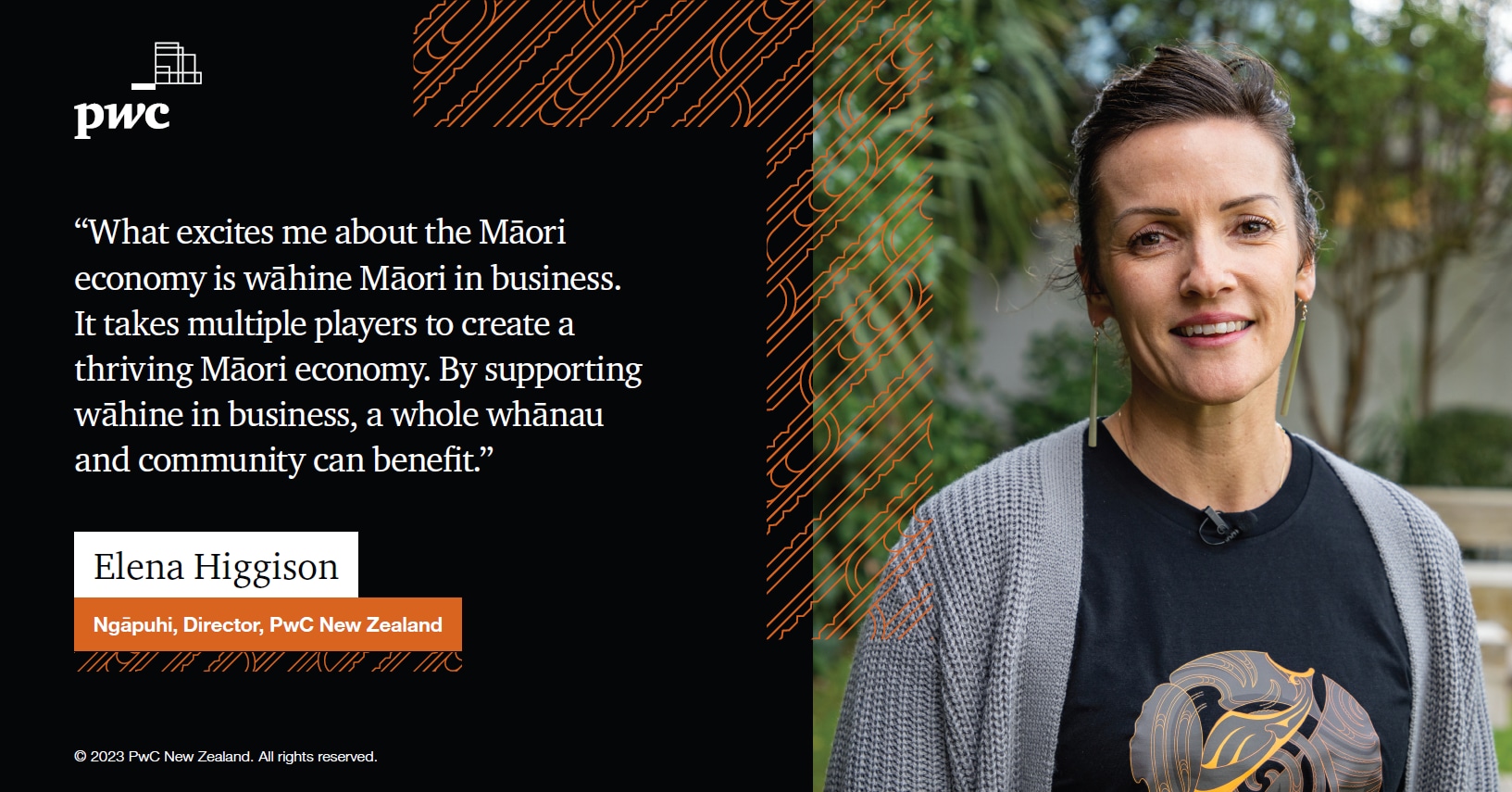In recent years the Māori economy has flourished as a unique ecosystem. It has been powered by common values, an intergenerational focus, combined with a desire for economic rangatiratanga (self-determination), greater social outcomes for Māori communities and sustainable outcomes for our natural environment.
Once a distinct segment of Aotearoa New Zealand’s economy, the Māori asset base now stretches well beyond Te Tiriti o Waitangi settlement structures and is now becoming increasingly diverse due to strong business growth.
Here we explore the current state and opportunities for the further development of the Māori business ecosystem which lead to greater productivity and overall wellbeing. These insights are based on our Manukura Māori business team’s research, discussions with Māori business leaders, government agencies and ministers.
Renarena te taukaea tāngata
Renarena te taukaea wānanga
Kia kōkiri ki tūārangi, puta ki te whai ao ki te ao mārama
Strengthen connections between people
Strengthen connections of knowledge
To advance beyond and into the world of enlightenment

Ngā Pou Ōhanga Māori
The pillars of Māori economic rangatiratanga
Our approach at PwC to supporting the growth of the Māori economy is centred around five pou (pillars), which are all critical components of their economy, as within any economy, driving productivity gains and improving wellbeing. They are also pathways to building enduring, sustainable and meaningful relationships with Māori. We see these as vital to embedding and continuing to build economic and social aspirations in an intergenerational manner.
Our five pou are:
- Rawa: Māori Business and Wealth
- Mahi: Skills, Employment and Entrepreneurship
- Hanganga: Enabling Physical and Social Infrastructure
- Auahatanga: Māori Innovation
- Taiao: Climate Change and Sustainability


E rua, e rua te kūmara me te pūtea, kāore he hua ōna ki tua atu i te whāngai tangata.
Click on the tabs below to learn more
Māori Business and Wealth
Māori businesses are held to a high standard for creating value for whānau and community. They work to maintain a balance between caring for people, protecting the land and resources, whilst also seeking to be financially self-sustaining.
Given the pace of change in the general business environment, Māori business needs to continually evolve to face these challenges and be fit for the future.
Māori businesses are growing in scale and number. They are also becoming more influential and respected.
Deep connections are developing across the sector with growing collaboration to:
- share governance capability
- assist businesses in creating value
- access capital
- build strategic partnerships.
These close connections are forged by aligned values, whakapapa and a heart to support the Māori economy to flourish.
Why this pou is important
What we’re seeing, and where it’s going

Skills, Employment and Entrepreneurship
The Māori economy will continue to flourish through a strong, growing pipeline of talent and a resilient workforce who are able to compete on the world stage.
Creating this pipeline is a long journey which includes:
- embracing unconventional career pathways
- building whānau (family) focused business models
- establishing alternative learning methods.
With significant growth in the skills and training sector over the last two years, more Māori businesses and non-government organisations (NGOs) are creating partnerships in this sector, as well as with government and private businesses.
Stronger entrepreneurial ecosystems are evolving that are based on upskilling people to enable them to take higher paying jobs and develop a relevant, future-proofed skillset.
Why this pou is important
What we’re seeing, and where it’s going

Enabling Physical and Social Infrastructure
As a strategic collective of stakeholders in Aotearoa New Zealand, it is natural and important for iwi (tribe) and Māori to have a focus in enabling development of both physical and social infrastructure to strengthen communities.
This includes encouraging investment into infrastructure that support the Māori economy and can:
- help overcome historical disparities
- create measures to withstand future natural disasters and impact from climate change
- enhance connectivity and accessibility
- enable Māori communities to participate and contribute to Aotearoa New Zealand's economic development.
There is an increasing desire for iwi organisations to invest into, and be included in, infrastructure planning and delivery. This is outside of the Government's push for progressive procurement outcomes.
There are several emerging examples of major projects in the housing, education, airport, water, health, and energy sectors.
Why this pou is important
What we’re seeing, and where it’s going

Māori Innovation
Like our ātua Māui-tikitiki-a-taranga, Māori are innately innovative. Our tupuna (ancestors) were resourceful and resilient navigators. Our artists, creators and storytellers today remind us of this legacy.
Embracing innovation allows Māori businesses and entrepreneurs to remain competitive on a global scale. By developing new products, services, and technologies, Māori businesses can enter international markets and diversify their revenue streams.
The technology industry remains Aotearoa New Zealand’s second largest export, and provides a big opportunity for Maori business. The tech sector’s international focus, ability to absorb future economic shocks and avoid conflict with climate goals is a major strength.
More Māori organisations are embracing innovation, technology and change as a means of growth. However, Māori participation rates in innovation and technology need to significantly improve.
This requires sustained effort to:
bridge digital divides
ensure funding pathways are accessible
support Māori enterprise in embracing new technologies
make the tech sector attractive to the future Māori workforce.
Why this pou is important
What we’re seeing, and where it’s going

Climate Change and Sustainability
Māori groups have unique economic, social and cultural systems that are strongly tied to the natural environment through whakapapa (heritage).
Many parts of the Māori economy are particularly vulnerable to climate-induced impacts. The broader social, economic and cultural influences on these communities are expected to be disproportionate. This is due to the remote location, low lying lands, and income disparities of many.
An elevated level of consultation is happening with iwi, hapū (subtribe) and whānau communities regarding Te aAo Tūroa (the natural world) and the use of natural resources. This is particularly evident during an extended period of regulatory reform and managing “just transitions” to lower carbon futures.
Māori communities are expressing a greater desire for participation and inclusion (versus consultation) in large-scale projects, in order to see the social and environmental benefits distributed more equitably.
Why this pou is important
What we’re seeing, and where it’s going

About us
PwC’s Manukura team is passionate about working with iwi, Māori focused entities, and organisations to achieve meaningful change for Māori and Aotearoa. We are guided by our mātāpono of whakapapa, whakamana, tauutuutu, rangatiratanga, whanaungatanga and manaakitanga. The unique power of our team is the combination of our cultural expertise, diversity and experience, together with PwC's leading professional services capability globally to deliver client-focused outcomes. Our community of solvers looks forward to a kōrero on how we can collaborate with you.











